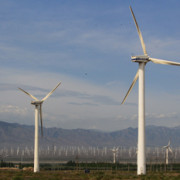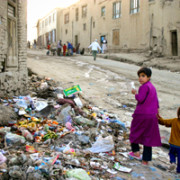Archive | Environment RSS feed for this section
Environment
 Environment
Environment
 Environment
Environment
 Environment
Environment

Time for an Asian environmental miracle?

The world is changing fast as Asia continues to surge ahead. In less than two generations, the Republic of Korea has gone from being one of the poorest countries in the world to one of the richest and a global leader in technology and manufacturing. The People’s Republic of China (PRC) is set to become the largest economy in the world in 2014. In Viet Nam, 15-year-olds are performing above OECD average in education. Under the new leadership of India's Prime Minister Narendra Modi, India will aim for the skies.
The food, water, energy nexus

Striking rates of economic growth notwithstanding, 550 million people remain hungry in the Asia and Pacific region, 65% of the population has no safe piped water, and more than 600 million people live without electricity. Overcoming these problems requires a combined approach in which food, water and energy are treated as a nexus, rather than as separate, standalone issues, which has too often been the case in the past.
Green cities: Changing the culture of waste

Asia’s drive to urbanize is taking an increasing toll on the environment with growing mountains of solid waste as city dwellers consume and discard resources at an ever increasing rate. If “green” cities are to be the answer to these environmental stresses then they will need to develop much more effective programs to reduce, reuse, recycle and recover waste.
Urbanization can be good for the environment

Urbanization degrades the environment, according to conventional wisdom. This view has led many developing countries to limit rural—urban migration and curb urban expansion. But this view is incorrect. There are a number of reasons urbanization can be good for the environment, if managed properly. First, urbanization brings higher productivity because of its positive externalities and economies of scale. Asian urban productivity is more than 5.5 times that of rural areas. The same output can be produced using fewer resources with urban agglomeration than without. In this sense, urbanization reduces the ecological footprint. The service sector requires urbanization because it needs a concentration of clients.


Search
Subscribe / Connect to Asia Pathways
Subjects
- Agriculture and natural resources
- Blog
- Capacity development
- Climate change
- Economics
- Education
- Energy
- Environment
- Finance sector development
- Gender
- Governance and public sector management
- Health
- Industry and trade
- Information and Communications Technology
- Infrastructure
- Miscellaneous
- Population
- Poverty
- Private sector development
- Regional cooperation and integration
- Sanitation
- Social development and protection
- Transport
- Uncategorized
- Urban development
- Video Blog
- Water
Recent Posts
- Artificial intelligence: A new driver for inclusive growth and development?
- Increasing trust in cross-border e-commerce and artificial intelligence
- Enhancing access to maternal and newborn healthcare in developing Asia
- Can electric vehicles lead the way to a sustainable future?
- Mitigating climate-related sovereign risk to accelerate action on the climate emergency




Recent Comments